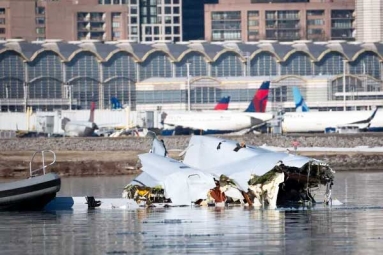
(Image source from: 9news.com.au)
The Swiss government is actively seeking innovative solutions to tackle the massive problem of thousands of tonnes of abandoned ammunition dumped in their lakes. To incentivize the search for a solution, they have offered a substantial prize of 50,000 Swiss francs (around Rs 48.5 lakhs). This ammunition, estimated to be around 3,300 tonnes in Lake Lucerne and 4,500 tonnes in Lake Neuchatel, was previously disposed of by the Swiss military. This practice of using the lakes as dumping grounds for old munitions dates back to the Cold War era, when Switzerland maintained a large defense force as part of its "armed neutrality" strategy. From 1918 to 1964, the Swiss military regularly dumped old weapons in lakes like Neuchatel, Thun, Brienz, and Lucerne, believing it to be a safe disposal method. However, the reality is far more concerning. Some of the munitions lie at depths ranging from 150 to 220 metres, while others are just a few metres below the surface. This poses a significant risk of explosion and water/soil contamination, as the toxic TNT could potentially pollute the lake water and sediment. Furthermore, the recovery efforts themselves may stir up the sediments, leading to a loss of oxygen and damage to the delicate lake ecosystem.
The delicate lake ecosystem faces serious threats from the murky waters and high-risk situation. Retrieving the munitions is expected to be a prolonged and costly endeavor, potentially costing billions. The Swiss defense department is actively seeking innovative and environmentally-friendly solutions, and has invited the public to submit their proposals by February next year. The competition, offering substantial prize money, is open and anonymous, with the deadline for entries set for February 6, 2025. A panel of experts will evaluate the submissions based on predetermined criteria and announce the results in April 2025. Retired Swiss geologist Marcos Buser advises seeking guidance from nations with prior experience in handling wartime wrecks containing unexploded ordnance, such as the UK, Norway, or Denmark. Mr. Buser, who has provided counsel to the government on this issue, has warned of the grave dangers of explosion and contamination, emphasizing the need for a meticulous and well-planned recovery operation, as reported by the BBC. His research paper highlights two primary concerns: the risk of explosion and the potential for water and soil pollution.
In the depths below, a grave peril lurks – one that jeopardizes both the environment and human well-being. The contamination of water and soil is a pressing issue, as the highly hazardous TNT could infiltrate the lake's waters and seabed, posing a grave threat to the delicate balance of the ecosystem. This submerged danger demands our utmost attention and action, lest its consequences prove catastrophic. This is not the first time that the Swiss army has been criticized for handling ammunition. In 1947, a massive explosion in Mitholz killed nine people and destroyed the village. The military recently announced that the 3,500 tons of unexploded ordnance buried in the mountain were unsafe and would require a decades-long cleanup operation.











